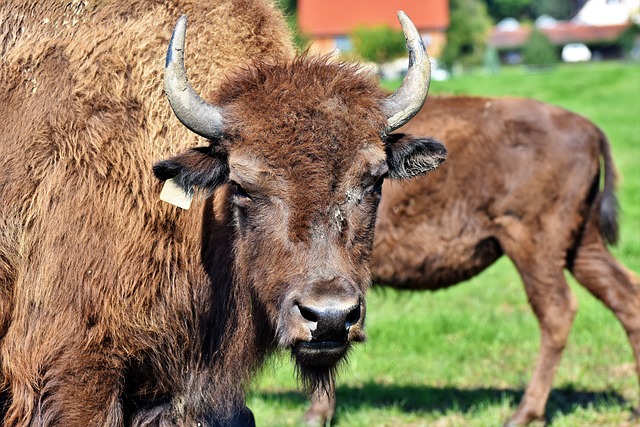NewsDesk @bactiman63
In a follow-up on the suspected anthrax outbreak in bison in the Slave River Lowlands, the Government of Northwest Territories reports the anthrax outbreak in the Slave River Lowlands Bison Population has been confirmed via laboratory testing. All bison carcasses will be treated as confirmed anthrax cases now that the disease has been confirmed in the Slave River Lowlands population.

As of July 7, 27 confirmed cases have been reported. To date, carcasses have not been found in public access areas.
Anthrax outbreaks can occur in bison populations (Mackenzie, Slave River Lowlands, and Nahanni herds) during the summer months.
Anthrax is a bacterial disease caused by inhaling or ingesting anthrax spores, which can be found in soil which has been contaminated by the spores. Bison can inhale the spores when wallowing in dust baths or ingest them while grazing and become infected.
Subscribe to Outbreak News TV on YouTube
The disease is fatal for bison. Though rare, it can also occur in other mammals, including humans.
While there have been no recent cases of human exposure or illness documented in the NWT, anthrax can cause an infection should a person come into direct contact with infected bison or bison parts. It is important to take appropriate precautions to prevent exposure.
The government advises the public to take these precautions to stay safe:
- Do not approach, hunt, or eat Bison in the Slave River Lowlands until otherwise indicated by ECC
- If you see a dead bison, do not go near it, do not touch it, and do not allow domestic animals to do so either. Report dead bison observations immediately to 1-867-872-6438
- Do not turn up soil nearby where bison were
- Anyone who has been exposed to anthrax spores but is not yet sick should be treated with antibiotics and a few doses of the vaccine to prevent infection. If for any reason you believe you may have interacted with a sick bison or soil surrounding them,, call your local health centre immediately.
- If you’re on-the-land in the area, stay aware of your surroundings, follow any signage or instructions, and stay out of areas which are closed due to anthrax response.
- Dengue in Bangladesh: Cases top 12,000 for the year, 2 additional deaths reported
- California: First Human Case of St. Louis Encephalitis Virus Confirmed in Kern County
- Kentucky: Increase in Legionnaires’ disease reported in Lexington
- Italy: 5 dogs, cat test positive for H5N1 avian influenza in Brescia, according to media report
- Malaria in Florida, What is Plasmodium vivax?
- Brain eating amoeba: Cases reported in Karachi, Pakistan and Kerala, India
- Minnesota: 1st animal anthrax cases reported in more than a decade

